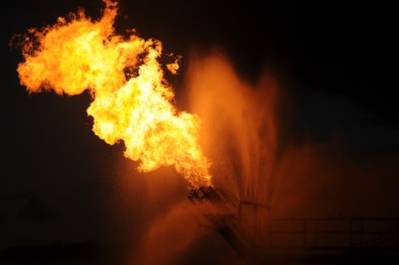The Obama administration on Thursday unveiled new oil well control rules to prevent the kind of blowout that happened six years ago on a
BP Plc rig in the Gulf of Mexico.
The Interior Department's Bureau of Safety and Environmental Enforcement announced the finalized regulations, which include more stringent design requirements and operational procedures for offshore U.S. oil and gas operations.
The new standards come nearly six years after a deadly explosion and fire on the Deepwater Horizon oil rig off the cost of Louisiana, which led to the worst oil spill of all time.
The Macondo well blowout and the fire on the Deepwater Horizon drilling rig on April 20, 2010, killed 11 workers.
"The well control rule is a vital part of our extensive reform agenda to strengthen, update and modernize our offshore energy program using lessons learned from Deepwater Horizon," said Interior Secretary Sally Jewell.
To improve the "culture of safety" on oil rigs and prevent future spills or blowouts, the new rule tightens requirements for blowout preventers, well design, well control casing, cementing and sub-sea containment.
It also calls for real-time monitoring, third party reviews of equipment, regular inspections and safe drilling margin requirements.
"We listened extensively to industry and other stakeholders and heard their concerns loud and clear," said Assistant Secretary for Land and Minerals Management Janice Schneider. "This rule includes both prescriptive and performance-based standards."
Ocean protection advocacy group Oceana said that
since Congress did not enact legislation to improve offshore drilling safety, the new standards by the Interior Department were "a significant improvement over the status quo."
Oceana Vice President Jacqueline Savitz said many measures in the final rule were standards already used by industry.
The Interior Department bureau has reported that offshore drilling caused at least 1,066 injuries, 496 fires and explosions, 22 losses of well control, 11 big oil spills and 11 fatalities since the Deepwater Horizon accident.
"The only way to truly ensure there will never be another disaster of the magnitude of Deepwater Horizon is to stop drilling offshore," Savitz said.
(Reporting by Valerie Volcovici; Editing by Lisa Von Ahn)











